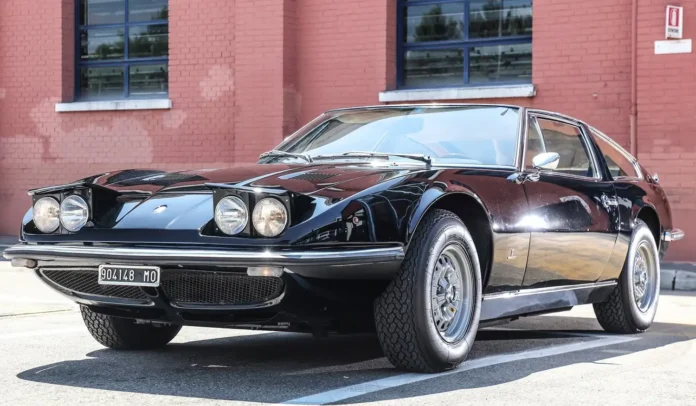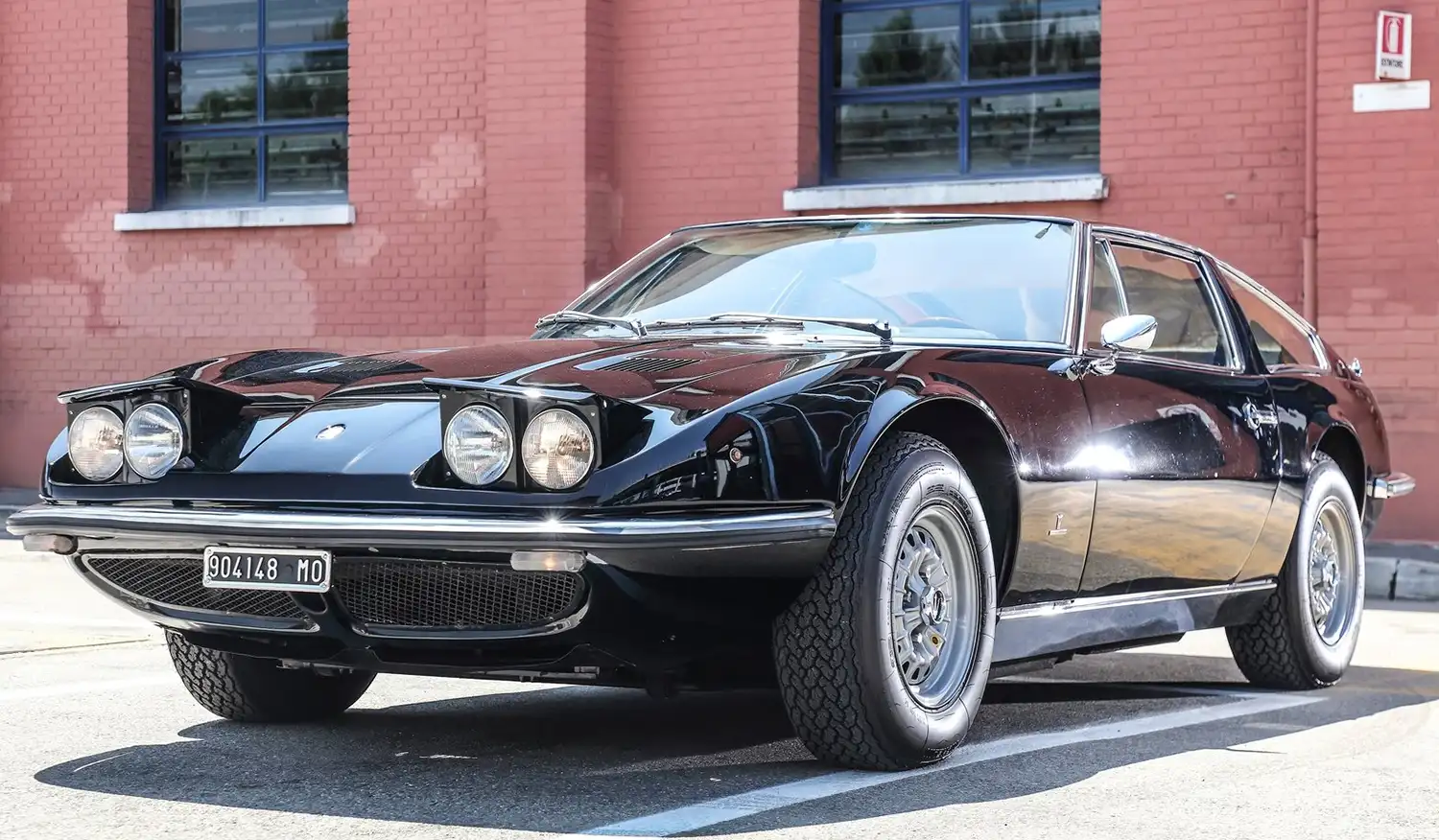
The 1st of July 1969 is an important day in the history of Maserati, since the first Maserati Indy built for a customer left the Trident Brand’s historic headquarters at via Ciro Menotti 322 in Modena, heading for delivery in Switzerland. The car was shipped to Maserati’s Swiss importer of that time, “Martinelli e Sonvico” in Chiasso. A few days later, the Indy, in “oro metalizzato” external colour and brown leather interior, was consigned to a wealthy Swiss businessman.
The Maserati Indy was presented at the Turin Motor Show in 1968, on the Carrozzeria Vignale stand. The following year, the car officially debuted on the Maserati stand at the Geneva Motor Show. In 1968, Maserati built about 700 cars, the best result it had ever recorded since the opening of the Modena production plant. The Maserati range in 1968 was composed of Ghibli, Mexico, Mistral, Quattroporte and Sebring models. In the same year, Maserati achieved a 43% market share in the “over 3,500 cc” segment in Italy.
In response to demand from customers who were looking for a comfortable, habitable and sporting car, Maserati decided to develop a new model. This led to the start of the AM116 (Alfieri Maserati 116) project: Carrozzeria Vignale was commissioned to design a four-seater coupé that would deliver comfort, sporty performances and innovative looks. The outcome was the Indy, named in honour of the 8CTF’s impressive wins at the Indianapolis 500 in 1939 and 1940.
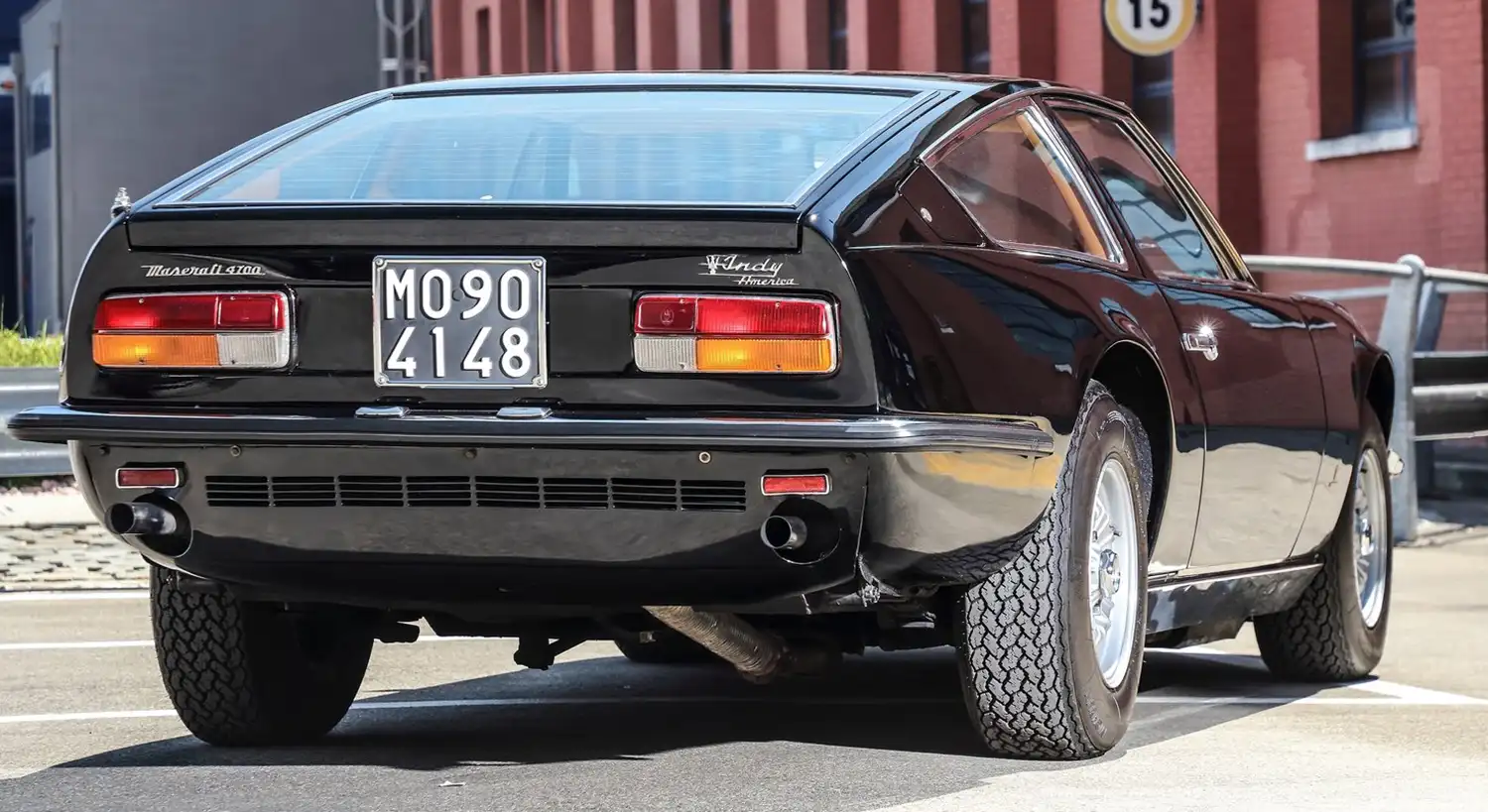
The new Maserati Indy had large windows to ensure excellent visibility without blind spots, while also giving the car a particularly sleek line. It also featured many genuine sportscar details: the front included pop-up headlights, a real sportscar icon of the time, and an air scoop underneath the slender bumper. Another distinctive characteristic was the truncated rear, reflecting the strong focus on aerodynamic efficiency in the design phase.
Initially, the engine was a 4,136 cc V8 with bore of 88mm and stroke of 85mm, four Weber 42 DCNF carburettors and single-plug transistor ignition with battery and regulating distributor. The standard transmission was five-speed manual, with automatic gearbox on request. Its power output was 260 hp and top speed peaked at 250 km/h.
In 1970 the Maserati Indy was also offered with the 4,719 cc V8 engine, equipped with the new electronic ignition system developed by Bosch. The maximum power output was boosted to 290 hp, with a top speed of 280 km/h.
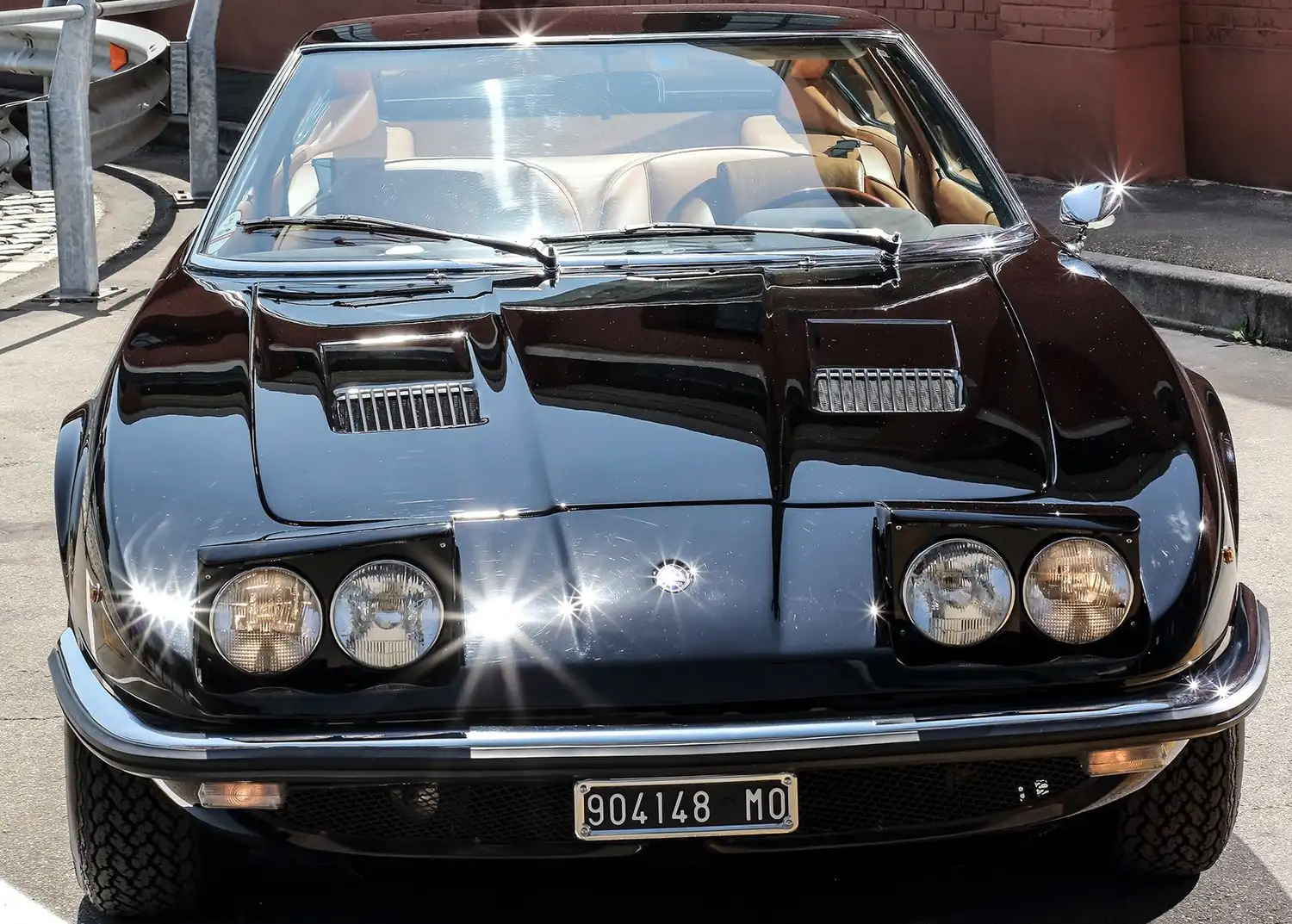
From 1971, the 300 hp, a 4,930 cc engine was introduced alongside the existing powerplants, and from 1973 this became the only propulsion unit available for the Indy.
The Maserati Indy boasted a high specification as standard: leather seat upholstery, mechanical anti-theft system, adjustable steering wheel, heated rear window, tinted power windows, reclining front seats with headrests and iodine headlights. Automatic gearbox, power steering and radio were available as optionals. From 1973, an air-conditioning system was added as standard. In total, from 1969 to 1975, the Modena plant built 1,102 Indy cars.
Prominent customers included Abdorreza Pahlavi, the Shah of Persia’s brother, who ordered an Indy in 1974, specifying a number of optionals including an opening sunroof. The car was prepared to his requirements and delivered at the company headquarters in February 1975. The car still survives and is now in a private collection.
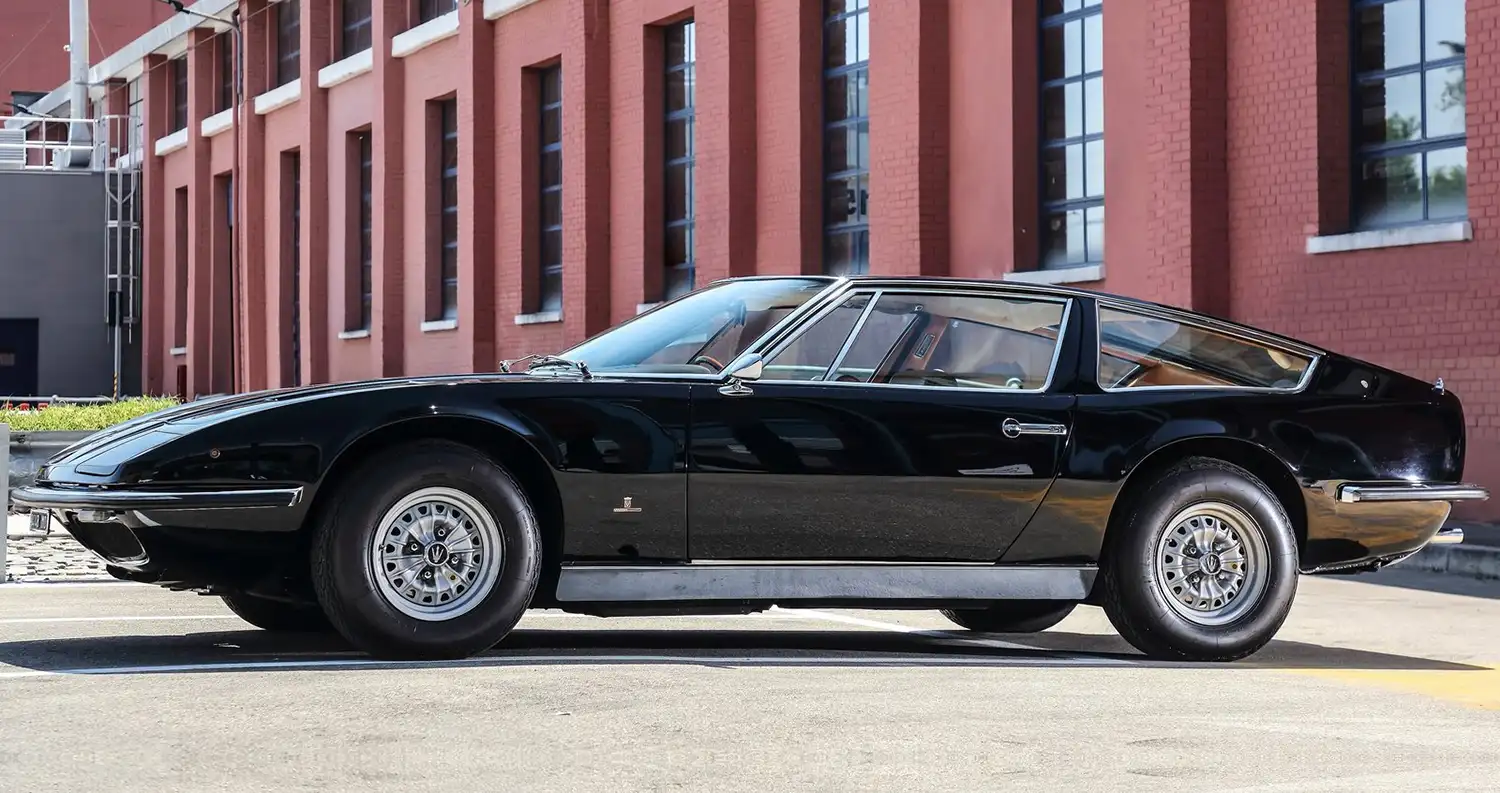
Key technical features of the Maserati Indy
- Production dates: 1969 – 1975
- Chassis: semi-monocoque with front subframe
- Engine: 90° V8
- Displacement: from 4,136 cc to 4,930 cc
- Power: from 260 hp to 300 hp
- Transmission: mechanical five-speed; Borg Warner three-speed automatic on request
- Braking system: ventilated discs with servo system
- Weight: from 1,500 kg to 1,650 kg
- Top speed: from 250 km/h to 280 km/h
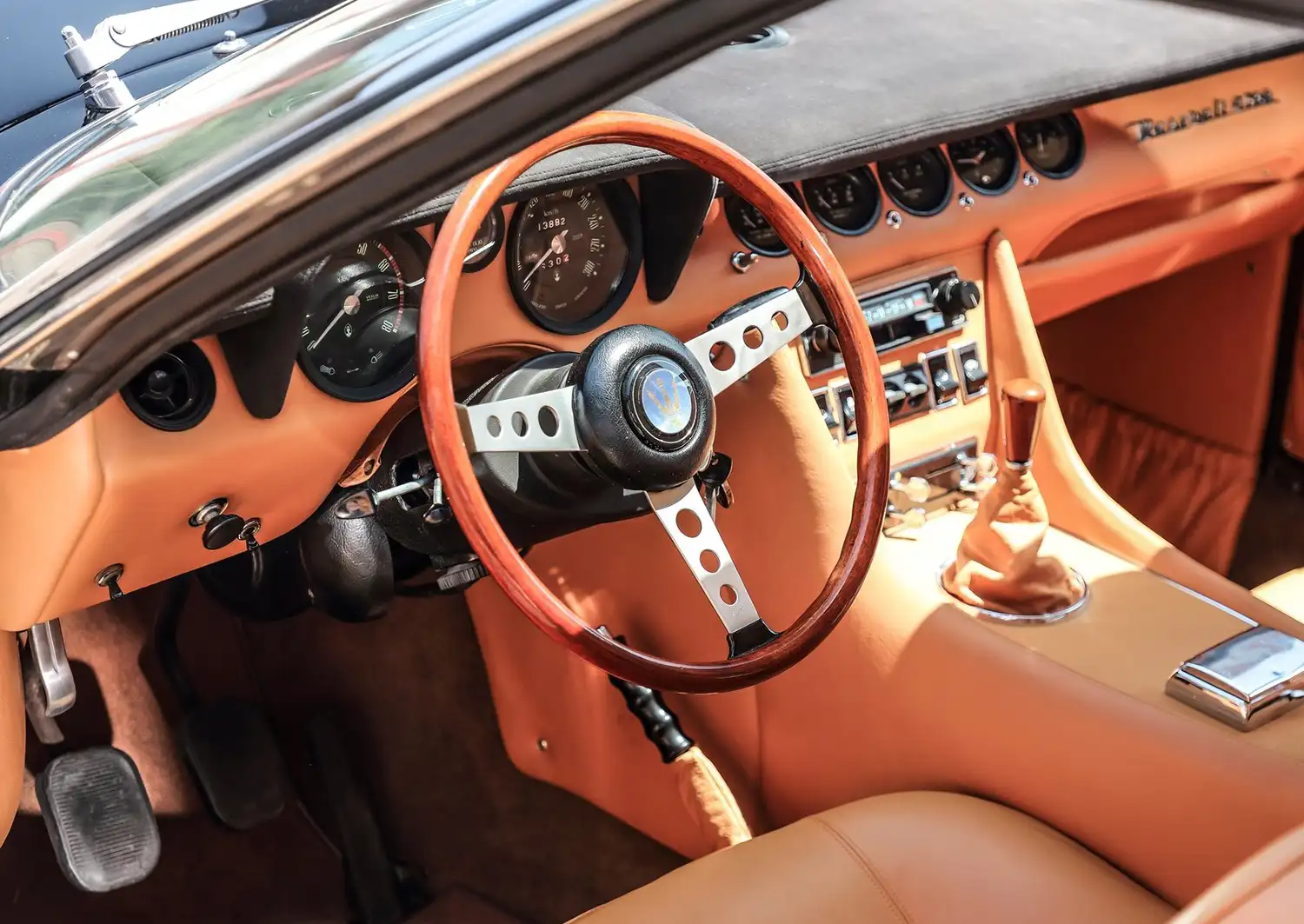

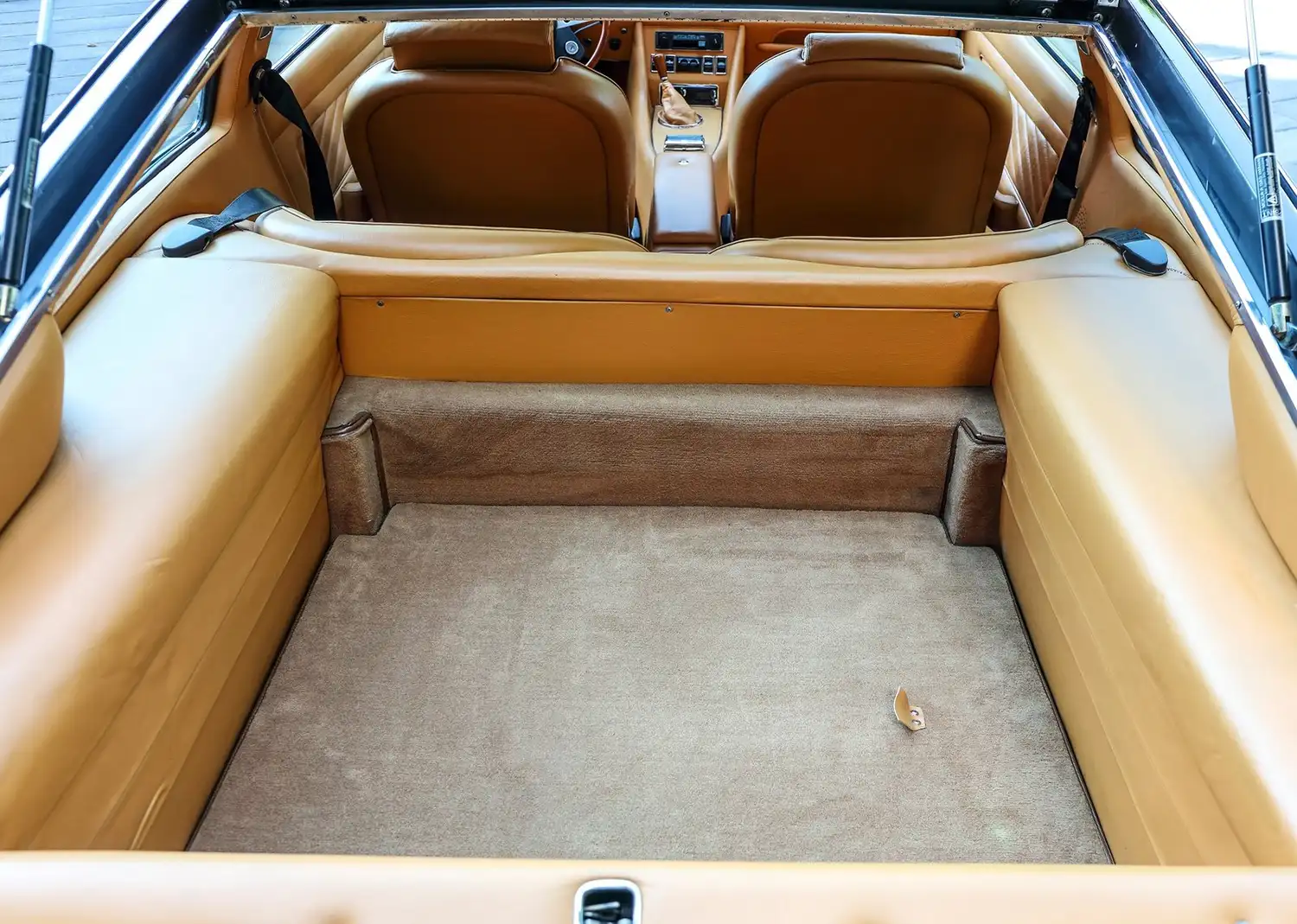
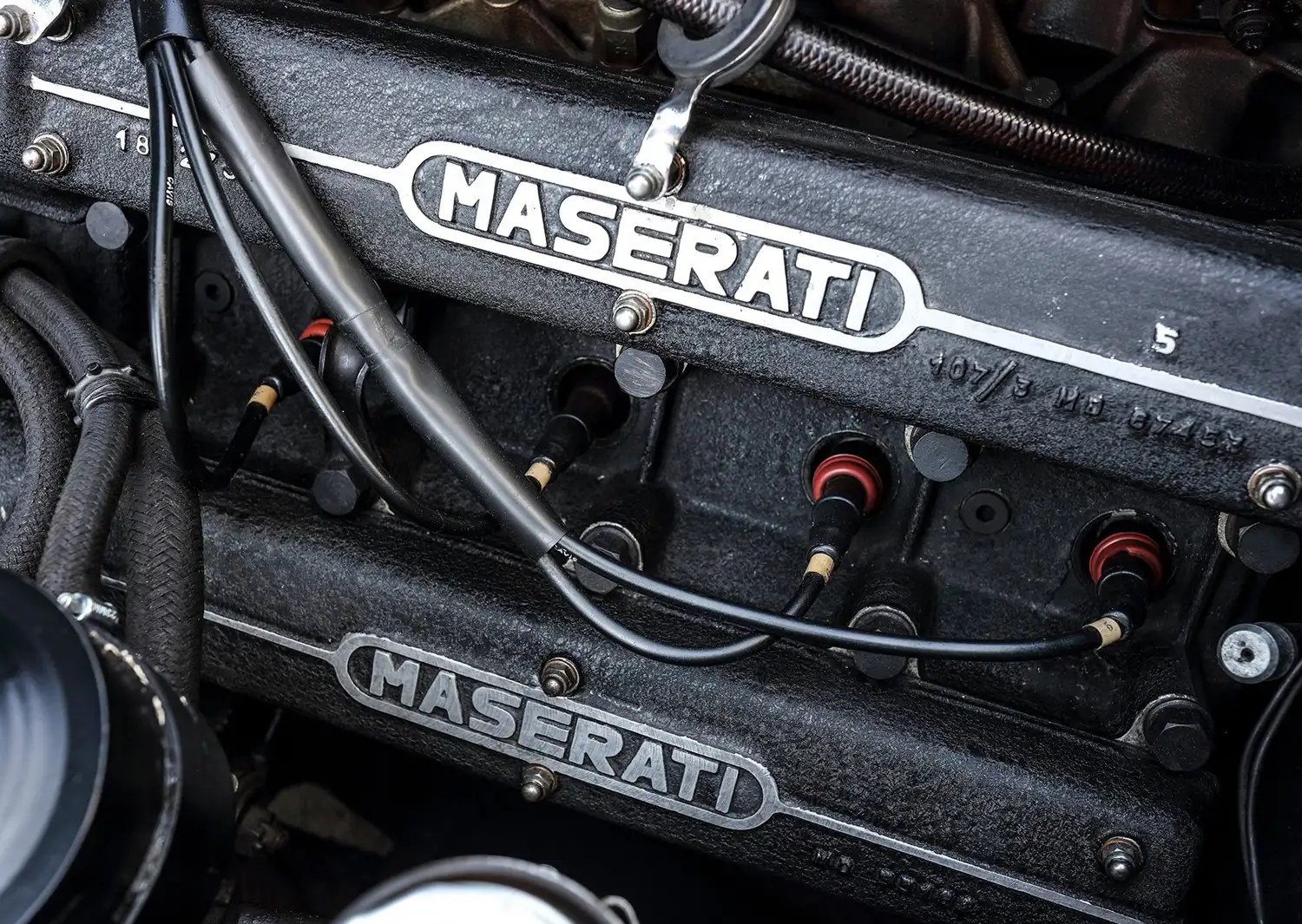
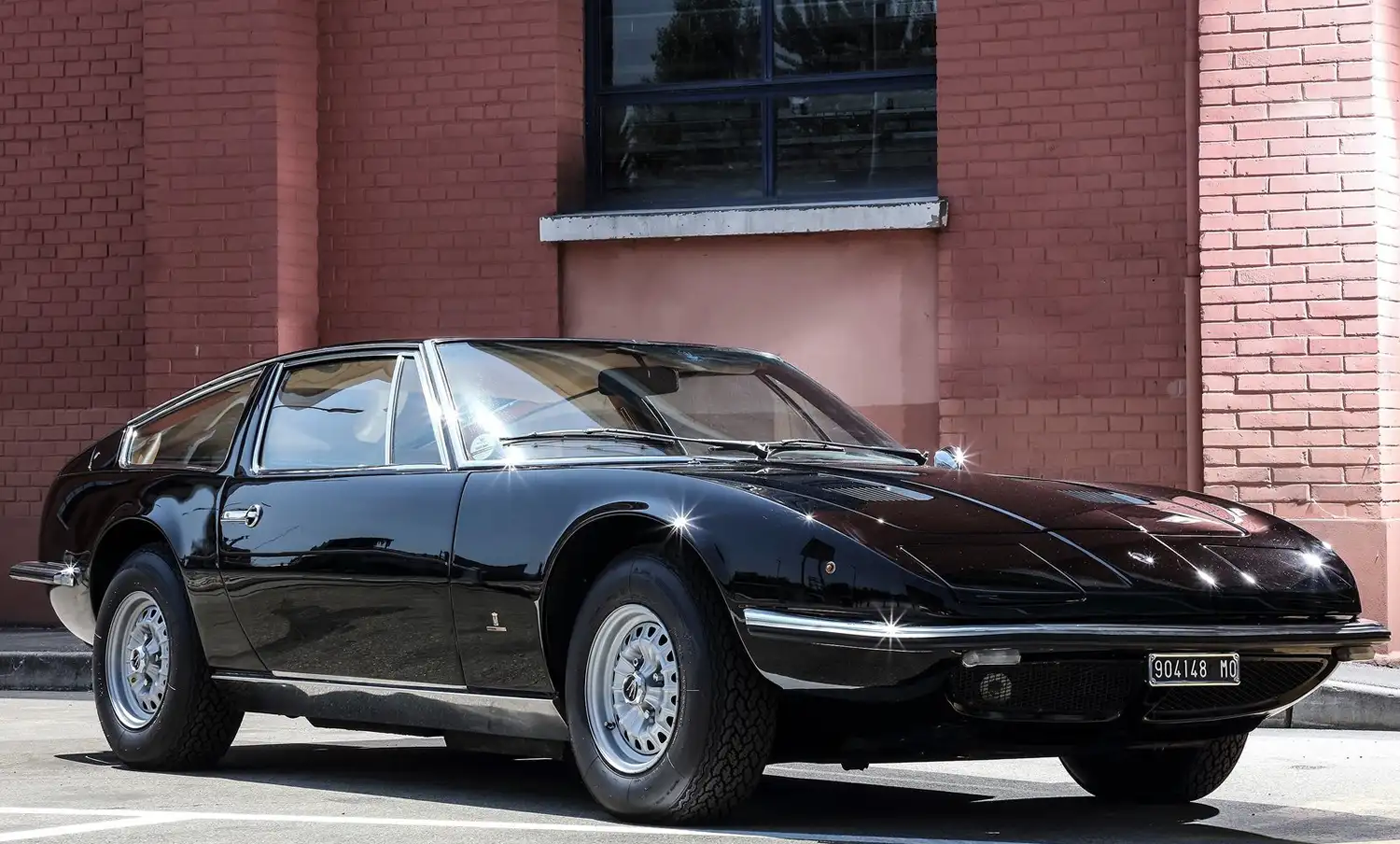
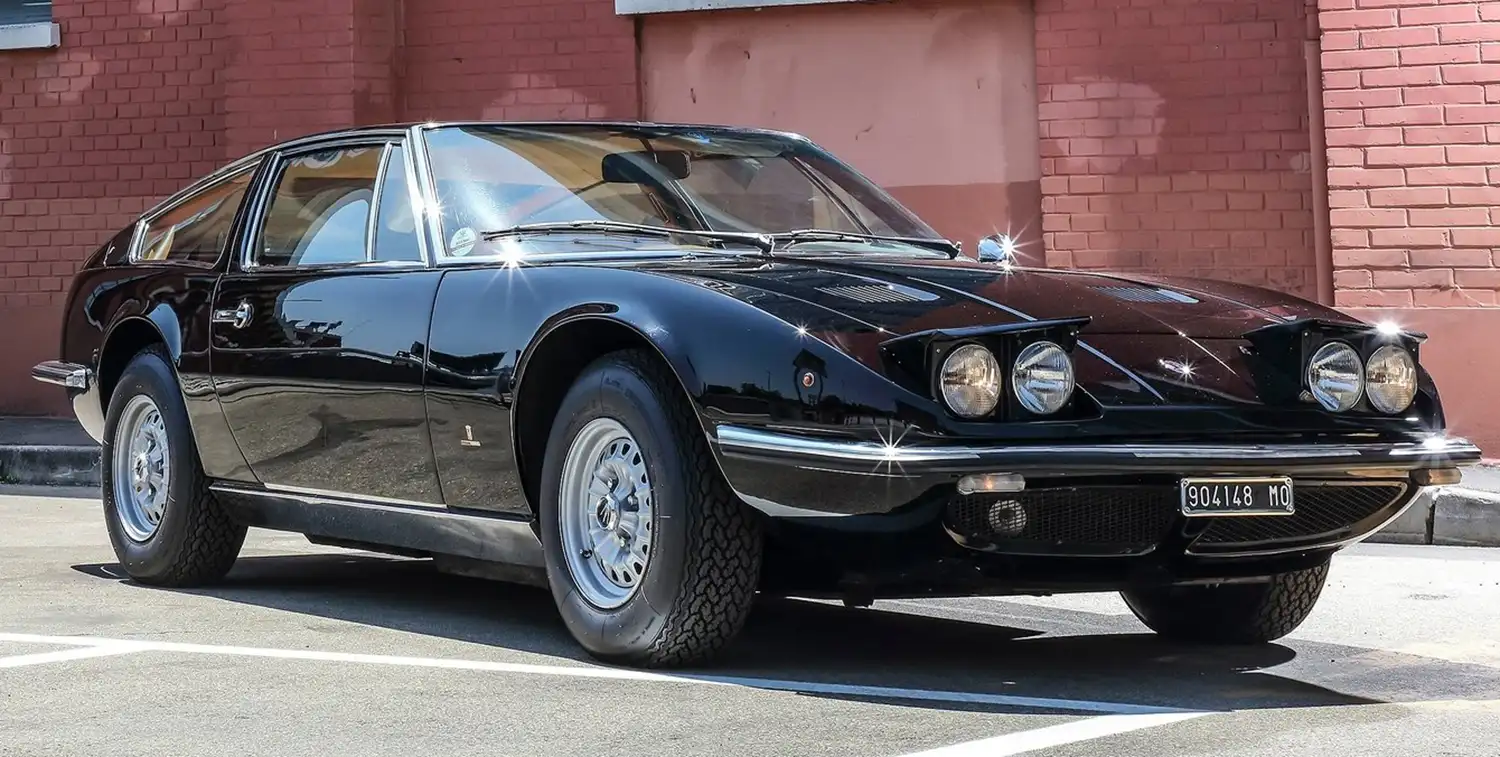
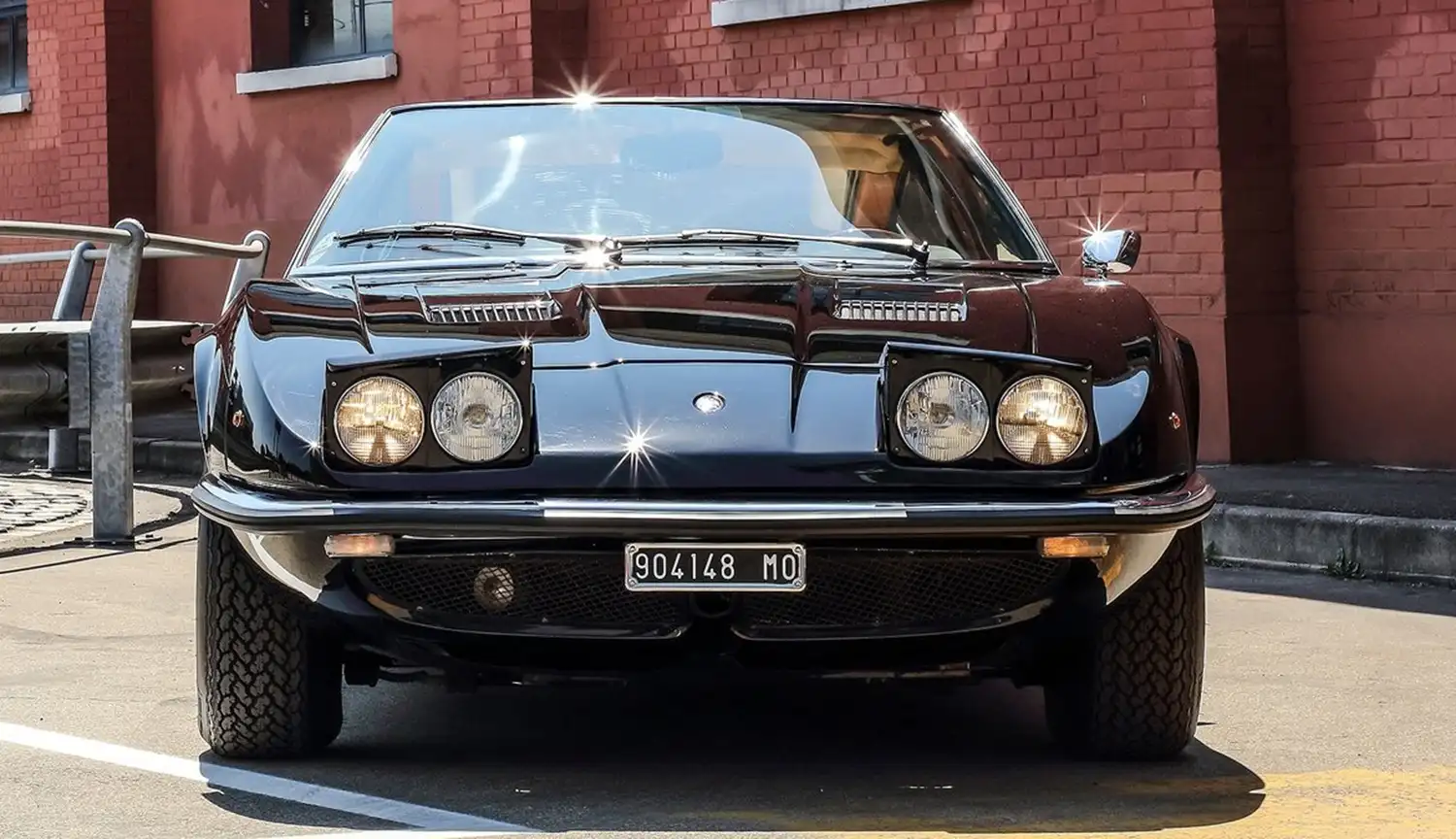
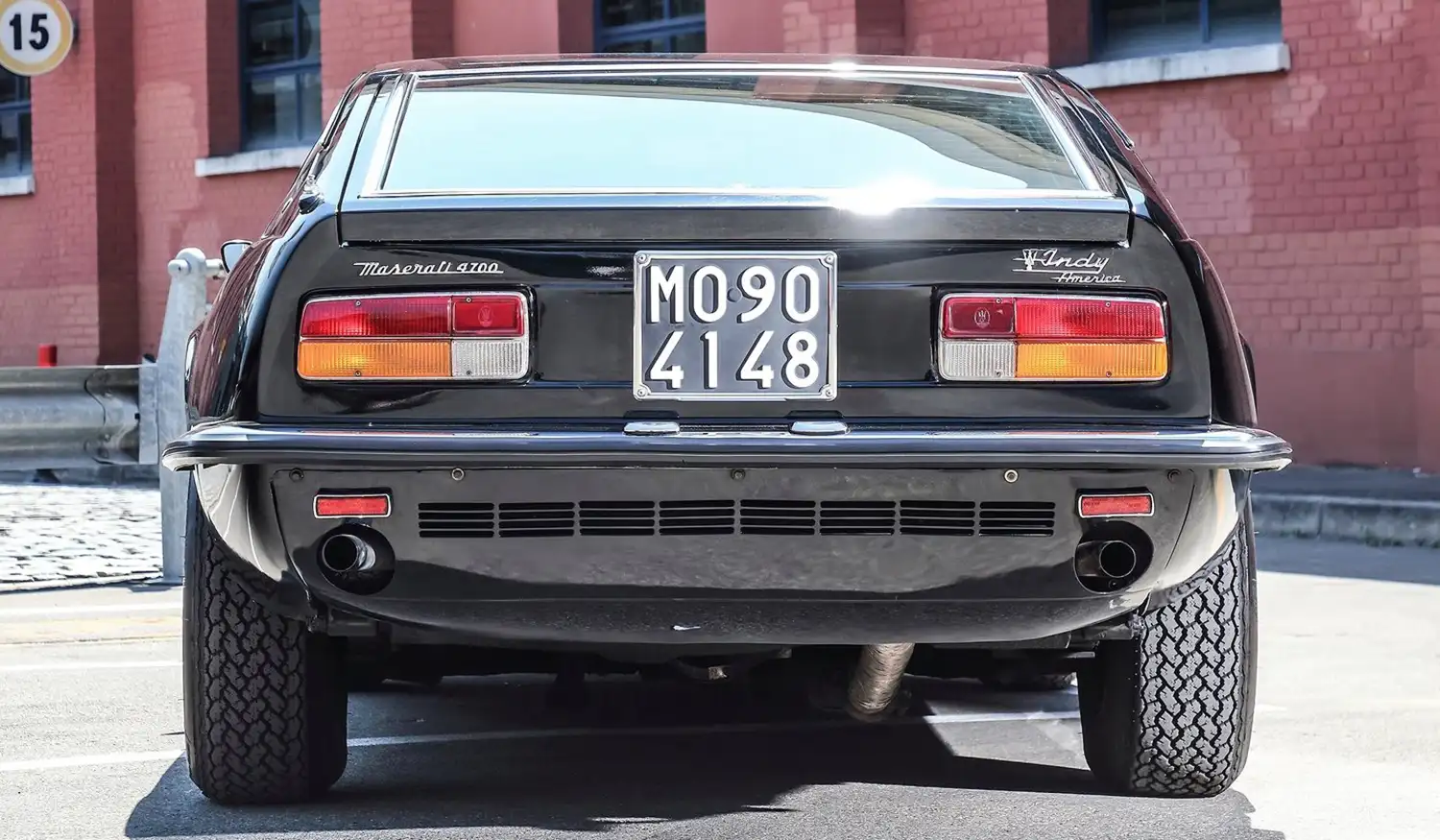
The post 1969 Maserati Indy appeared first on Wheelz.me-English.


